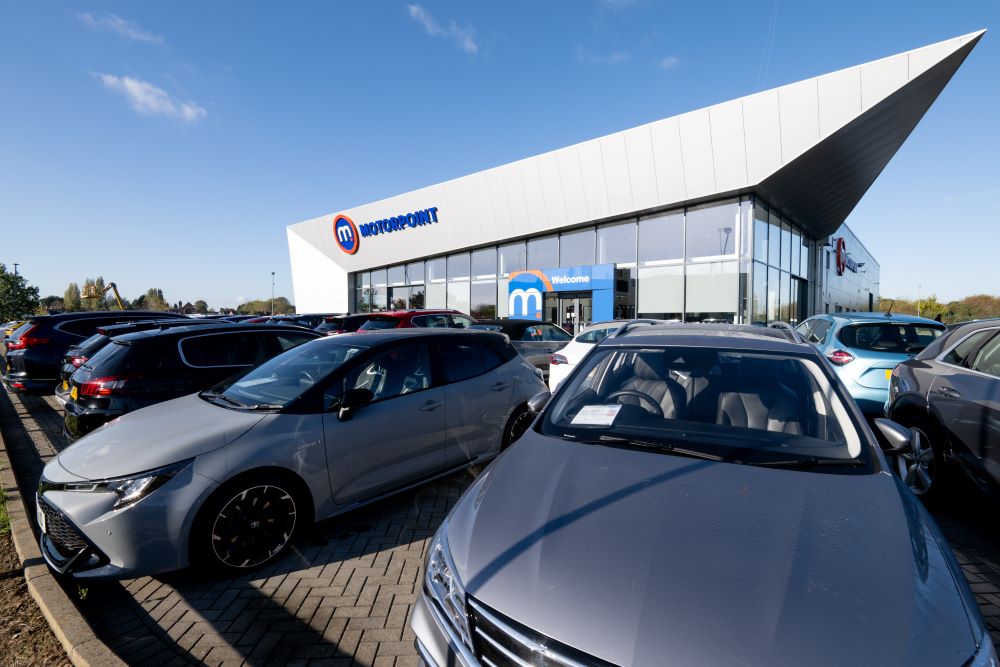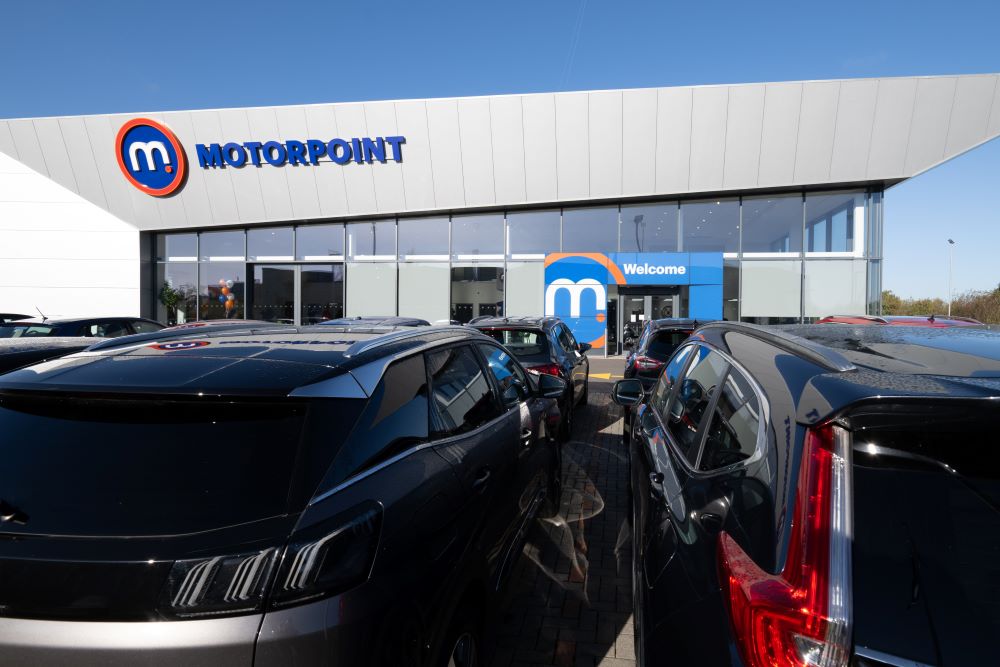Due to the cost of living, older cars are being held onto longer by motorists.
Survey of 2,000 UK drivers who own cars older than 10 year revealed that 57% would keep their car for longer if they had concerns about their current financial situation.
Some drivers have had to pay thousands of dollars in repair bills for their older cars.
While nearly one in 10 aren’t sure how much their ageing car has set them back.
And 21 per cent reckon they’ve spent more on repairs in any given year than they think their entire car is actually worth.
64 percent said they were stressed by unexpected car repair bills, while 44% reported having received at least two surprise bills in the last 12 month.
Almost a third (31 per cent) have had a bill of £400 or more in the past year for an unanticipated but essential maintenance item, while 10 per cent have had a single bill of £1,000 or more.
35% of the owners admitted that their beloved banger died, and they took it out on the car by giving it a boot or hitting the steering wheel.
43% of respondents also believed it was more cost-effective to purchase and maintain a newer vehicle than to keep their old one.
The best finance option
Mark Carpenter, CEO of nearly all new vehicle retailer MotorpointAccording to the research company, maintenance costs will be necessary throughout the car’s life.
“In the current climate many motorists will weigh up the pros and cons to keeping an older car which they may have purchased outright with financing a newer vehicle that may meet their needs in terms of additional space, lower emission, and safety.
“For those with a vehicle that has become unpredictable, or changing needs such as a growing family, it is important to understand the options available such as a fixed monthly payment and a vehicle with warranty protection to manage repair bills, and to be sure this is affordable.”
The study also revealed that 36% of respondents claimed that their lack of knowledge about car finance options has led them to keep their old car rather than upgrading it.
Nearly half (46%) intend to replace their vehicle within the next three year, and 25% will finance it.
26 percent aren’t sure if they will pay cash, or finance the cost spread. However, 23 percent would be more open if someone explained the options to them.
58% find car finance terms confusing.
According to OnePoll figures 57% of those who anticipate a change will buy a pre-owned vehicle that is newer than their current one.
People would consider changing their older car for lower running costs (24%), better reliability (13%), and simply wanting a change (7%)
Sticking to your budget
Mark Carpenter added: “If you have identified a need to change your car, it’s important to thoroughly examine your budget and stick to what is affordable, including if your circumstances change.
“Car finance terms can be confusing and knowing the difference between the options might seem like a bit of a minefield at first.
“We’d always advise doing your research, either online, over the phone or by speaking to an advisor in person.
“Once you’ve set a budget, using an online finance calculator is often the quickest way to determine the right finance route for your circumstances, for example the deposit size, monthly payment, the length of the finance agreement and annual mileage.
“Finally, any additional products such as extended warranty should be factored into the overall budget.
“These require extra initial outlay, however they can help avoid unexpected costs further down the line.”
Motorpoint partnered Natisha Chatten, an automotive presenter on Instagram who runs the channel @auto_social_uk to compile a series containing top tips for people looking to buy their next car.
Natisha Chatten said: “Making sure you’re aware of all the pros and cons of different types of car finance depending on your personal circumstances is the first step to making the right purchase.
“Having one set payment can be more affordable if it means the car is more suited to your needs, so this is worth considering as part of your decision.”
Understanding key terms related to car finance – What they really mean
GMFV – If you choose to purchase a vehicle through PCP, the Guaranteed Minimum Future Valuation is an estimate of how much a vehicle will sell for at the end.
The PCP contract can be terminated at any time. This can either be paid in a lump sum or refinanced in order to own the vehicle.
APR – Annual Percentage Rat takes into account the annual interest added to a loan amount to purchase a car or another item.
This rate will remain fixed for the term of the agreement.
Natasha Chatten’s top financial tips for planning for your next car purchase
Is it financially feasible to change your car?
It may be time to buy a new vehicle if your repair bills are higher than the cost of buying a new one.
Write a list consisting of the costs of maintenance, tax, fuel, and insurance – and see how they might compare to a newer model.
Where should you purchase your used car
On the surface, buying privately often appears to be the cheaper option but the seller won’t have put the car through a rigorous inspection, nor will they offer a warranty.
Even though the initial cost is lower, it could lead to more expensive consequences down the road.
Make sure to check the running expenses
Don’t get hung up on engine size alone – modern engines often can get more power from smaller and smaller engines, so remember to research the power and fuel economy of your next model.
Don’t go overboard with your monthly payments
As a rule of thumb, you should only spend 10 to 15 per cent of your net income on your car’s monthly payments.
It can be very helpful to know what your budget is before you start car shopping.
Cash payment for your car
This method means you can sell the car at any time, you don’t have to worry about monthly repayments, and you have no mileage limitations.
It is not recorded in your finance agreement.
On the downside, you’re placing all your cash into a depreciating asset and your credit score won’t be improved by managing a loan responsibly.
Personal loans
These are a good option if you can’t afford to buy a car outright – and as with cash, you have the option of selling the car whenever you like and no mileage limitations.
Loans can sometimes be cheaper ways of borrowing than other methods – particularly if you’ve got a good credit score, which can be boosted further if you keep on top of repayments.
However, loans may not always be linked to the vehicle. In such cases, other assets could be seized.
Hire purchases (HP)
Also known as HP Finance, this allows you to secure a loan against the car you’re purchasing – these are often easier to get accepted for and you have no mileage limitations.
The cost is spread with fixed regular monthly repayments, after which you own the car outright – and if you’re responsible with loan repayments, this can help build your credit score.
This method can be subject to a 10% initial payment and may have a higher APR than personal loans.
Personal contract purchase
This is a loan secured against a vehicle that you pay back monthly with interest.
The car’s depreciation is taken into consideration based on how far you plan to drive.
There are many zero deposit deals available. You can also continue to use a new car with a similar monthly fee every two-four years. However, you do not automatically own the car after the loan term ends.
You can either give the car back to your dealer and walk away, or you can pay one final payment (often called a balloon payment) to keep it.
However, you could be charged with damage to the vehicle.
[Denial of responsibility! newsanyway.com is an automatic aggregator of the all world’s media. In each content, the hyperlink to the primary source is specified. All trademarks belong to their rightful owners, all materials to their authors. If you are the owner of the content and do not want us to publish your materials, please contact us by email – at newsanyway.com The content will be deleted within 24 hours.]



